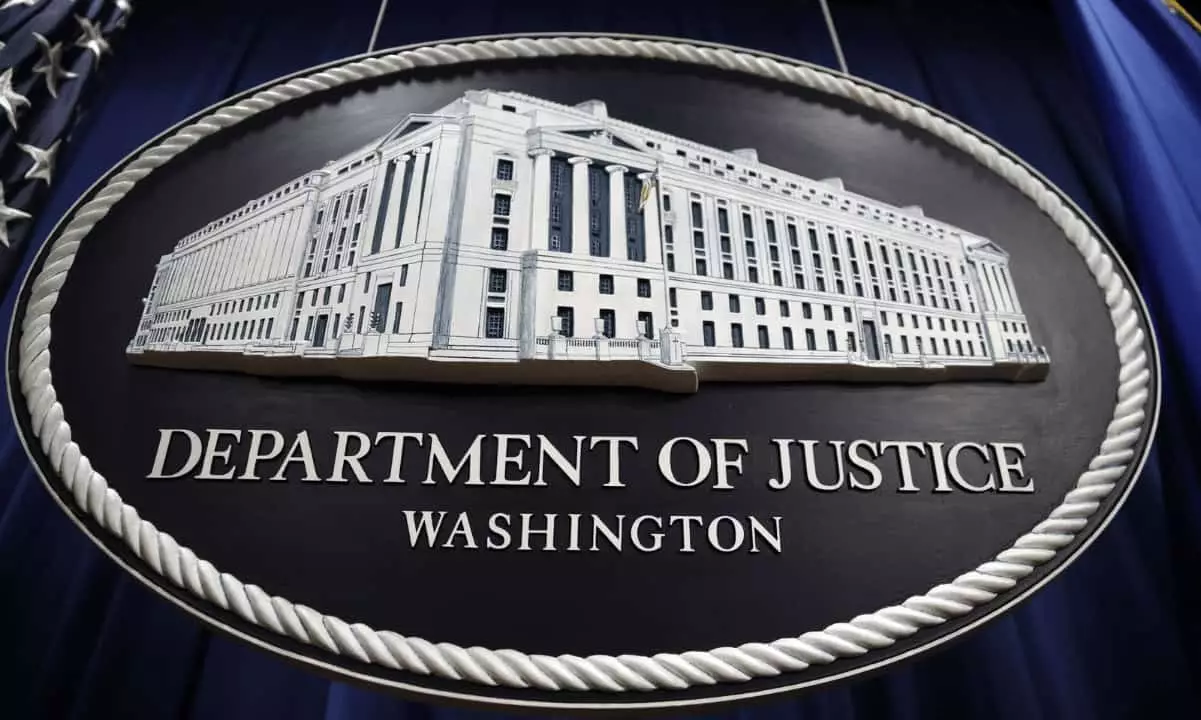Garantex, a cryptocurrency platform with roots in Russia, was once considered just another broker in the rapidly expanding crypto landscape. However, beneath its seemingly innocuous facade lay a sprawling conduit for illicit activity, facilitating billions in transactions that financed everything from drug cartels to terrorist cells. This exchange’s story is a stark reminder of the complex and often unseen battles in the digital age—where money laundering, cybercrime, and criminal enterprises intertwine in a seamless, yet deadly dance. Its eventual crackdown marks a pivotal moment, exposing how regulators and law enforcement are increasingly willing to dig deep into the dark web to confront the digital wild west.
This case reveals more than just criminality; it underscores the strategic failures and vulnerabilities that allowed such exchanges to flourish. For years, Garantex operated under a veneer of legality while effectively serving as an international bank for the worst offenders. Its founders and executives orchestrated a sophisticated web of obfuscation—using shell companies, VPNs, and infrastructural shrouds—to keep their illicit activities hidden from authorities. Such tactics highlight why the fight against crypto crime requires more than just reactive measures; it demands robust, proactive oversight and a cultural shift among regulators worldwide.
The U.S. Authority’s Bold Move: A New Frontier in Regulatory Power
The recent announcement by the U.S. Department of State and the Treasury’s Office of Foreign Assets Control underscores an aggressive approach toward tackling crypto-based crime. Offering up to $6 million in rewards, the U.S. authorities are signaling they are no longer content to play catch-up. Instead, they are asserting their influence on the global stage by targeting key figures—the chief operating officers, co-owners, and affiliated entities—who kept Garantex operational for years.
What’s most compelling in this action is how it signals a shift toward a more assertive use of sanctions and financial control. Blocking wallets, seizing assets, and redesignating the platform’s successor—Grinex—demonstrate a willingness to wield economic leverage to dismantle criminal operations. This approach reaffirms the notion that digital assets are just as susceptible to regulatory oversight as traditional banking systems—if not more so—forcing criminal actors into a corner. It also sends a message to other exchanges that operating in the gray legal zones will inevitably attract high-profile attention and repercussions.
This crackdown raises an important question: can regulatory agencies keep pace with the complexity of cybercriminal networks that are almost inherently resistant to conventional enforcement? The Garantex saga confirms that the answer must be yes, but it reveals just how delayed and reactive existing frameworks have been. Waiting for evidence of criminal conduct before acting is largely insufficient; proactive, pre-emptive strategies are essential if authorities are serious about real deterrence.
The Implications for the Crypto Sector and Conservative Regulation
The crackdown on Garantex reveals an uncomfortable truth for the broader crypto community: its reputation remains precariously tethered to criminal misuse. While most exchanges and users operate lawfully, the lingering stigma—often based on cases like Garantex—threatens sustainable growth. The sector’s decentralized and borderless nature makes regulation exceedingly difficult, which criminals exploit. Yet, heavy-handed regulatory measures like sanctions and asset freezes risk alienating legitimate participants who seek to innovate responsibly.
From a center-right, liberal perspective, one can argue that stronger regulation isn’t inherently anti-crypto—rather, it’s essential for integrating digital assets into mainstream financial systems. Proper oversight builds trust, ensures compliance, and deters bad actors. The Garantex case demonstrates the necessity for balanced measures: firm action against criminals without suffocation of innovation. Over-regulation could stifle technological progress, but lax oversight only emboldens criminals and invites systemic harm.
Moreover, this case exemplifies how governments should prioritize cooperation and transparency, establishing clear, enforceable standards that incentivize compliance without pushing exchanges into clandestinity. Rather than blanket bans or draconian laws, measured, centered policies can foster a safer, more trustworthy crypto ecosystem—one capable of supporting economic modernization while protecting societal interests.
The Future of Crypto and the Fight Against Crime
Ultimately, the Garantex saga is a rallying cry for reform-minded regulatory frameworks that recognize the transformative potential of crypto but vehemently oppose its abuse. The United States’ stance exemplifies a proactive posture—using rewards, sanctions, and legal indictments to create a formidable deterrent. Yet, it also exposes the ongoing challenge: how to strike a balance between facilitating innovation and maintaining law and order.
It is clear that digital currencies will remain a double-edged sword—an empowering tool for financial inclusion or a weapon used by criminals. Governments, regulators, and legitimate businesses must collaborate to craft policies that discourage illicit activity without marginalizing the honest participants who see crypto as a vehicle for economic progress. Sound regulation rooted in transparency and accountability is the antidote to unchecked criminality.
As the U.S. intensifies its efforts, the industry must learn from these lessons. Strengthening compliance, transparency, and cooperation will be vital. Criminal enterprises like Garantex operate in the shadows now—yet, with determined oversight and a firm regulatory hand, the light of accountability can ultimately illuminate the cryptocurrency landscape.

